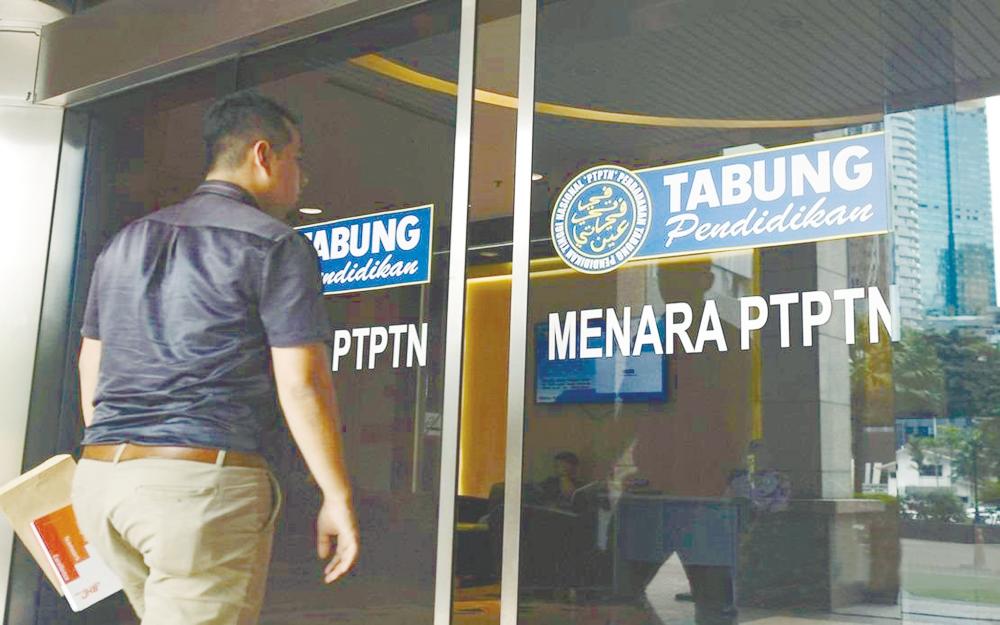PETALING JAYA: With 430,000 untraceable borrowers being among those owing RM6 billion to the National Higher Education Fund Corporation, academics have called on the Higher Education Ministry to take ownership of the problem and address it immediately.
They were commenting on a Sept 21 statement by Higher Education Minister Datuk Seri
Dr Zambry Abd Kadir, who gave the figures and said the ministry “is considering various measures, including legal action, against defaulters”.
Universiti Teknologi Mara Arshad Ayub Graduate Business School senior lecturer Prof Tan Peck Leong said the corporation was designed to be a revolving fund, in which repayments from past borrowers would finance loans for future ones.
“So, repaying the loan is not just a responsibility, but a national imperative. It is irresponsible of borrowers to be in default of their loans as this will jeopardise future students.”
Economist and Southeast Asia Lead of the Global Labour Organisation Prof Niaz Asadullah said loan defaulters should be tracked using records from the Inland Revenue Board.
“It is shocking that the defaulters cannot be traced. Malaysia has excellent records. We have birth certificates, National Registration Identification numbers, tax files and even passport details.
“So, what excuse is there for being unable to trace the defaulters? It is just the ministry’s failure to do so that is the problem.
“Similar to tax defaulters, borrowers should be traced through Inland Revenue Board records. Placing them on blacklists or preventing access to certain financial services until repayments are made would force them to clear their debts.”
Niaz said the first step is for the ministry to re-establish itself as a credible body, adding that borrowers should feel that there is zero tolerance for default and that the time to negotiate is long over.
He said RM6 billion in unpaid loans would potentially lead to increased borrowing costs, reduced access to education, and the need for additional government funding.
“The long-term consequences of unpaid loans could include reduced funding for future students and stricter lending criteria. This could disproportionately affect low-income students and make higher education less accessible to those who rely on loans.”
Niaz said clear and consistent communication regarding the responsibility to repay loans
and the consequences of non-repayment is crucial.
“Not only do borrowers need to be made aware of their repayment obligations, they also need to be informed that the old ways are over.”
Tan said the loans are flexible and structured to be highly affordable, requiring only 5% to 8% of a borrower’s gross monthly income as repayment.
“A person earning RM1,500 a month would only need to pay between RM75 and RM240, which is a small amount by any standard.
“Given that diploma holders and above typically earn more than the minimum wage, it seems like they are prioritising other expenses like car loans, mortgages and luxury spending over loan repayments.
“Additionally, a culture of waiting for government discounts or incentives has developed, leading borrowers to delay payments in hopes of financial relief.”
Tan said some defaulters also see the loan as a form of government welfare, believing that repayment is not necessary unless there are severe consequences.
“The RM6 billion in unpaid loans represents a significant financial burden on the country. If repayment rates remain low, the fund will be depleted and the government must inject more capital to keep it afloat.”
He said stricter enforcement measures are necessary as currently, the corporation only takes action after 12 months of non-repayment.
Blacklisting defaulters in the Central Credit Reference Information System has proven to be ineffective, particularly for those not seeking credits from financial institutions.
“More impactful steps, such as imposing travel restrictions, could be effective for young borrowers and serve as a strong deterrent.”









